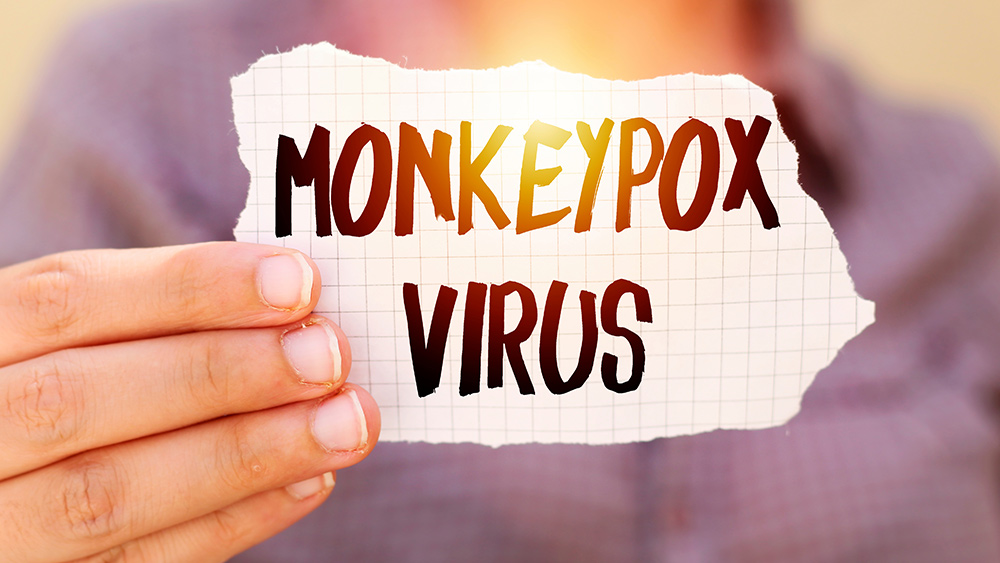Nutrient-rich mushrooms can significantly lower the risk of cognitive decline
08/31/2019 / By Edsel Cook

Do you want to protect your brain from seemingly inevitable cognitive decline which comes with age? Then eat lots of mushroom every week as they contain many nutrients and natural compounds that decrease the risk of mild cognitive impairment.
The savory taste of mushrooms makes them a staple ingredient in various cuisines and recipes. In fact, many people around the world use and include mushrooms in their meals.
Wild edible mushrooms and their cultivated counterparts serve as rich sources of fiber, minerals, protein, and vitamins. Many studies have reported the benefits of eating these nutrient-rich foods, in particular, how it helps maintain good health and prevent various diseases.
Recently, a research team from the National University of Singapore (NUS) looked into the effects of mushrooms on the brain. They found that eating even small amounts of mushroom daily can reduce the risk of cognitive decline.
A condition that tends to develop in the brains of older people, mild cognitive impairment often signals the onset of Alzheimer’s disease. However, the Singaporean researchers found that consuming even a small portion of mushrooms daily makes older adults less likely to develop the age-related condition. This, in turn, may prevent the development of Alzheimer’s. (Related: Cancer, dementia, heart disease: Three more reasons to maintain excellent oral health.)
Eating lots of mushrooms weekly reduces the risk of age-related cognitive impairment
In their cross-sectional analysis, the NUS researchers drew their data from an earlier Singaporean study called Diet and Healthy Aging (DaHA). They picked 663 participants aged 60 years and above to represent the country’s population of older people.

The observational period lasted for six years. During that time, the researchers investigated the connections between the number of mushrooms eaten by the participants and their risk of mild cognitive impairment.
The researchers also paid particular attention to the common types of mushrooms consumed by the participants. These included golden mushrooms, shiitake mushrooms, and white button mushrooms, as well as button mushrooms that underwent the canning process or were dried.
The researchers found that participants who ate two or more servings of mushrooms every week were less likely to experience a decline in their cognitive function. These participants also enjoyed a 50 percent reduction in their risk of developing mild cognitive impairment.
Moreover, the neuroprotective effects of mushrooms applied even to participants who ate smaller amounts each week. The researchers reported that these participants also received some health benefits from consuming mushrooms.
Make mushrooms a bigger part of your healthy diet
Mushrooms are not just limited to supporting brain health by preventing cognitive decline and Alzheimer’s disease. They also offer other significant health benefits.
The natural compounds present in mushrooms can help reduce the risk of certain cancers. Cordyceps, maitake mushrooms, oyster mushrooms, Portobello mushrooms, and reishi mushrooms have all undergone testing for their anti-cancer potential and have yielded positive results.
Mushrooms are also good for the immune system. They bolster the adaptive immune response of the body to disease-causing substances, leading to a stronger immune function.
Edible mushrooms contain lots of dietary fiber that curbs the appetite and makes a person feel fuller after a meal. By decreasing a person’s total calorie intake, mushrooms can make it easier to manage and maintain a healthy weight.
Finally, the high vitamin D content of mushrooms can alleviate a deficiency of that important nutrient. In doing so, mushrooms can also improve depression symptoms and prevent bone loss, cancer, cardiovascular disease, and other disorders associated with vitamin D deficiency.
Some mushrooms produce vitamin D after being exposed to ultraviolet light. They may serve as a source of vitamin D for vegans.
Sources include:
Submit a correction >>
Tagged Under:
aging, alternative medicine, Alzheimer's disease, Alzheimer's prevention, anti-aging, anticancer, brain function, brain health, brain health boost, brain nutrients, button mushrooms, cancer cures, cancer treatment, clean food, cognitive decline, cognitive function, cognitive health, dietary fiber, disease treatments, food cures, food is medicine, foodfood, functional food, golden mushrooms, immune system, longevity, men's health, mild cognitive impairment, Mushrooms, natural cures, natural medicine, neurodegenerative disease, neuroprotective, nutrients, phytonutrients, prevention, research, shiitake mushrooms, vitamin D, weight management
This article may contain statements that reflect the opinion of the author





















